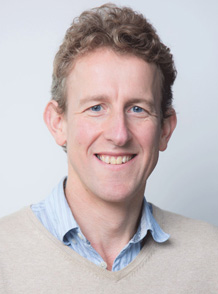Top European scientists warn tipping points could cascade toward absolute climate disaster. Prof. Tim Lenton from U of Exeter. Permafrost expert Susan Natali from Woods Hole explains CO2 pouring out from the WINTER Arctic.
Listen to or download this Radio Ecoshock show in CD Quality (57 MB) or Lo-Fi (14 MB)
TIPPING POINTS AND RISKS TOO GREAT TO TAKE – TIM LENTON
With climate, the worst-case scenario is not a risk anyone can accept. Disaster is not unlikely or far away. We may already be headed to a hot-house world. Perhaps all we can hope is to slow down that wrenching change.
Those are the dark considerations of some very highly-regarded scientists. In November, just days before the Madrid COP25 Climate conference, this group published a Comment in the top journal Nature. It is titled: “Climate tipping points — too risky to bet against“. The latest paper is loaded with some renowned scientists, the majority of them coming from the Potsdam Institute in Germany. In addition to Tim Lenton they include Johan Rockström, Owen Gaffney, Stefan Rahmstorf, Katherine Richardson, Will Steffen and Hans Joachim Schellnhuber.
The authors say:
“We argue that the intervention time left to prevent tipping could already have shrunk towards zero, whereas the reaction time to achieve net zero emissions is 30 years at best. Hence we might already have lost control of whether tipping happens. A saving grace is that the rate at which damage accumulates from tipping — and hence the risk posed — could still be under our control to some extent.”
From the University of Exeter UK, we reached the lead author, Professor Timothy M. Lenton, director of the Global Systems Institute.
Listen to or download this Radio Ecoshock interview with Tim Lenton in CD Quality or Lo-Fi
Tim Lenton was inspired into climate and biological sciences by James Lovelock and the Gaia hypothesis. His 2011 book with Andrew Watson is: “Revolutions that Made the Earth” (Oxford University Press). Ironically, the publisher Oxford University Press advertised this book as “An antidote to the current string of depressing and apocalyptic books about climate change“. The new paper certainly seems depressing and possibly apocalyptic!

Professor Tim Lenton, University of Exeter
THE NEW PAPER: A RISK TOO GREAT
The Comment in the journal Nature discusses four classes of environmental damage:
1. severe damage to ecosystems
2. tipping points in unique systems (such as the Amazon); and regional tipping points
3. long-distance impacts in a chain of events following a tipping point
4. “Global cascade” cascading interaction between tipping points; the Gotterdammerung scenario.
Global Cascade
We find this in the new Comment:
“In our view, the clearest emergency would be if we were approaching a global cascade of tipping points that led to a new, less habitable, ‘hothouse’ climate state. Interactions could happen through ocean and atmospheric circulation or through feedbacks that increase greenhouse-gas levels and global temperature…Alternatively, strong cloud feedbacks could cause a global tipping point”
I covered this new science with NASA’s Tapio Schneider in my Radio Ecoshock show “When Clouds Cannot Continue” April 3, 2019.
More from the new Comment by Lenton and the scientists from Sweden and Germany:
“It is challenging for climate models to simulate such past ‘hothouse’ Earth states. One possible explanation is that the models have been missing a key tipping point: a cloud-resolving model published this year suggests that the abrupt break-up of stratocumulus cloud above about 1,200 parts per million of CO2 could have resulted in roughly 8 °C of global warming…
“We argue that cascading effects might be common. Research last year analyzed 30 types of regime shift spanning physical climate and ecological systems, from collapse of the West Antarctic ice sheet to a switch from rainforest to savanna. This indicated that exceeding tipping points in one system can increase the risk of crossing them in others. Such links were found for 45% of possible interactions.”
Here the authors refer to a key paper for understanding cascading tipping points:
“Cascading regime shifts within and across scales” Juan C. Rocha, Garry Peterson, Örjan Bodin, Simon Levin
Science 21 Dec 2018
COMMENT FROM ALEX SMITH
My sense is that after 25 years of experts and governments meeting to “solve” the climate emergency, we will fall either into giddy apathy with one last bonfire of fossil fuels, or play with very undemocratic and not progressive social solutions. We seem to be toying with both right now. Is there a place when climate scientists have to look at the social and economic reasons for our failure to react?
It’s like we can see the approach of an asteroid through telescopes. We may still have time to stock away food and take cover. Instead, we freeze into fantasies, trying to expose ourselves as much as possible to the blow. As the genius medical researcher Ajit Varki told us on Radio Ecoshock, humans likely developed denial as a necessary companion to the ability to know we will die. Without denial we cannot function. Now that is working against our last hopes of salvation from the carbon trap and ruin to the living Earth.
A paper published in PNAS in 2008 showed systems can appear to reach an equilibrium just before they break into a significant change of state. Lenton and co-author Chris Boulton wrote about that in 2015. I interviewed Chris on Radio Ecoshock. So there is another trap: things can look very stable, very unlikely to change, just before they change radically and never go back.
MORE PLACES TO FOLLOW UP – UNDERSTANDING THIS NEW WARNING
Here is another view of this tipping point warning, from journalist Fred Pearce, published at Yale 360. “As Climate Change Worsens, A Cascade of Tipping Points Looms” December 5, 2019.
You can see a You tube summary of the new paper by Lenton et al by Marco Altorre here.
====================================================================================================
UNKNOWN CARBON: SUSAN NATALI ON THE PERMAFROST
The frozen Earth has now joined humans as a driver of warming. New science discovers greenhouse gases leaking from the permafrost – during winter – are already greater than carbon captured by plants in the Polar summer. Could emissions from the Arctic help push climate beyond human tolerance?
A new study says on our current path, by end of century, those greenhouse gases rising up from winter permafrost lands will increase by 41 percent. The lead author is American permafrost expert Susan M. Natali. Dr. Natali is Associate Scientist and Arctic Program Director at the Woods Hole Research Center (WHRC). The study was supported by NASA’s Arctic-Boreal Vulnerability Experiment, or (ABoVE).
The title of the new paper published in Nature Climate Change is “Large loss of CO2 in winter observed across the northern permafrost region“. There are 75 authors.
It was common currency that the band of polar plants in the north were providing a sink for atmospheric carbon, while the winter was neutral, dormant. Just the discovery of winter emissions in the far North sounds very serious for our climate. Those gases have not been included in projections by governments, the IPCC, and climate models. Now scientists discover the winter permafrost lands are emitting more greenhouse gases during winter than all the vegetation growing in the Arctic can absorb during the summer season. We have lost an essential carbon sink and gained an unwanted carbon source.
Listen to or download this Radio Ecoshock interview with Susan Natali in CD Quality or Lo-Fi
Polar lands currently lose 1,662 billion metric tonnes of carbon dioxide to the atmosphere, and that grows at worst case by 41%. Earlier permafrost science, including a 2015 paper Susan Natali co-authored, suggested “a gradual and prolonged release of greenhouse gas emissions” from the north. But it may not be so gradual, as new science appears.
In October 2019, Joe McCarthy released this article: “Soil in the Arctic Is Now Releasing More Carbon Dioxide Than 189 Countries“. For more on the dangers of permafrost thaw, check out my Radio Ecoshock interview with Canadian scientist Merritt Turetsky.
Here is another article, this time about Susan Natali’s latest revelation on permafrost carbon emissions.
I also recommend Robert Hunziker’S latest article on permafrost and greenhouse gases “Ignoring Climate Catastrophes” published November 11, 2019, and this article from NASA “Permafrost Becoming a Carbon Source Instead of a Sink“.
See also: Nov. 8, 2019 “Arctic Shifts to a Carbon Source due to Winter Soil Emissions”
WRAP UP FROM ALEX
My attention has been not on Iran but on Australia. The super fire season there continues with more very hot weather expected. More than two dozen people have died, and at this writing, almost 2,000 homes totally destroyed. The number of wild animals killed is half a billion and climbing. Some species may never recover. This is a global scale disaster.
My interview with former New South Wales fire commander Greg Mullins remain essential to understand why this is happening, the climate connection, and why fire fighters there have been overwhelmed. The show is “Burning at the End of the World”.
I am also working on a series of videos that chronicle my project building a geothermal greenhouse. I have been testing it for 3 years. Now it’s time to report results, what worked and what did not, and show you how to build one. That video course should be available from this site this spring (2020).
I will be needing extra income to stay alive while I produce this program (which is given away free to everyone, without advertising). My wife, who has helped support me and the radio project, is likely to retire soon. That means I will be counting on Radio Ecoshock listeners to help pay the bills, leaving me free to spend my 40 hours a week researching, producing and distributing this program for the world. If you can help, please donate here.
You as a listener are my main joy and motivation. Thank you so much for taking the time and trouble to tune in to these key issues developing almost unseen in our world. Our children are depending on us.
Alex

Re: Dr. Natali interview: wouldn’t a greener arctic become an amplifying positive feedback when it starts burning, coating the snow and ice with soot and creating a thermal blanket over the area?
Pingback: Nuclear, and some other, news this week | Nuclear Australia